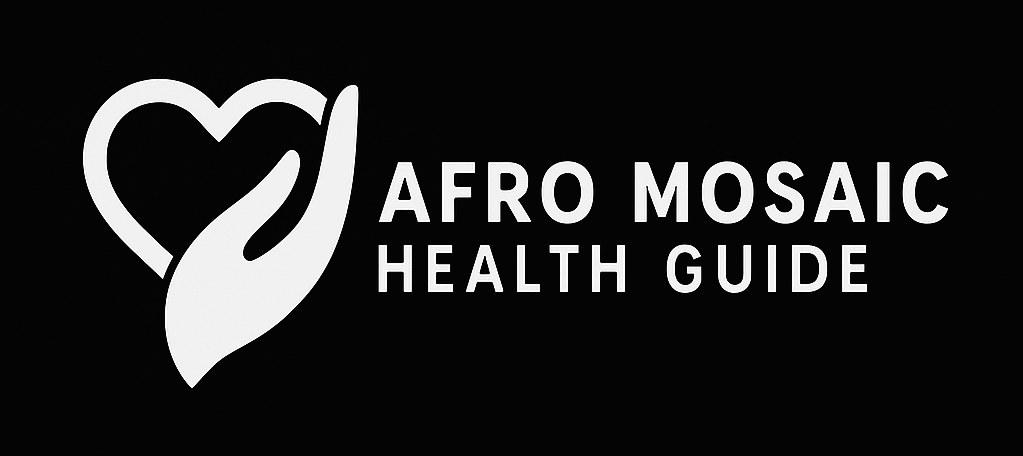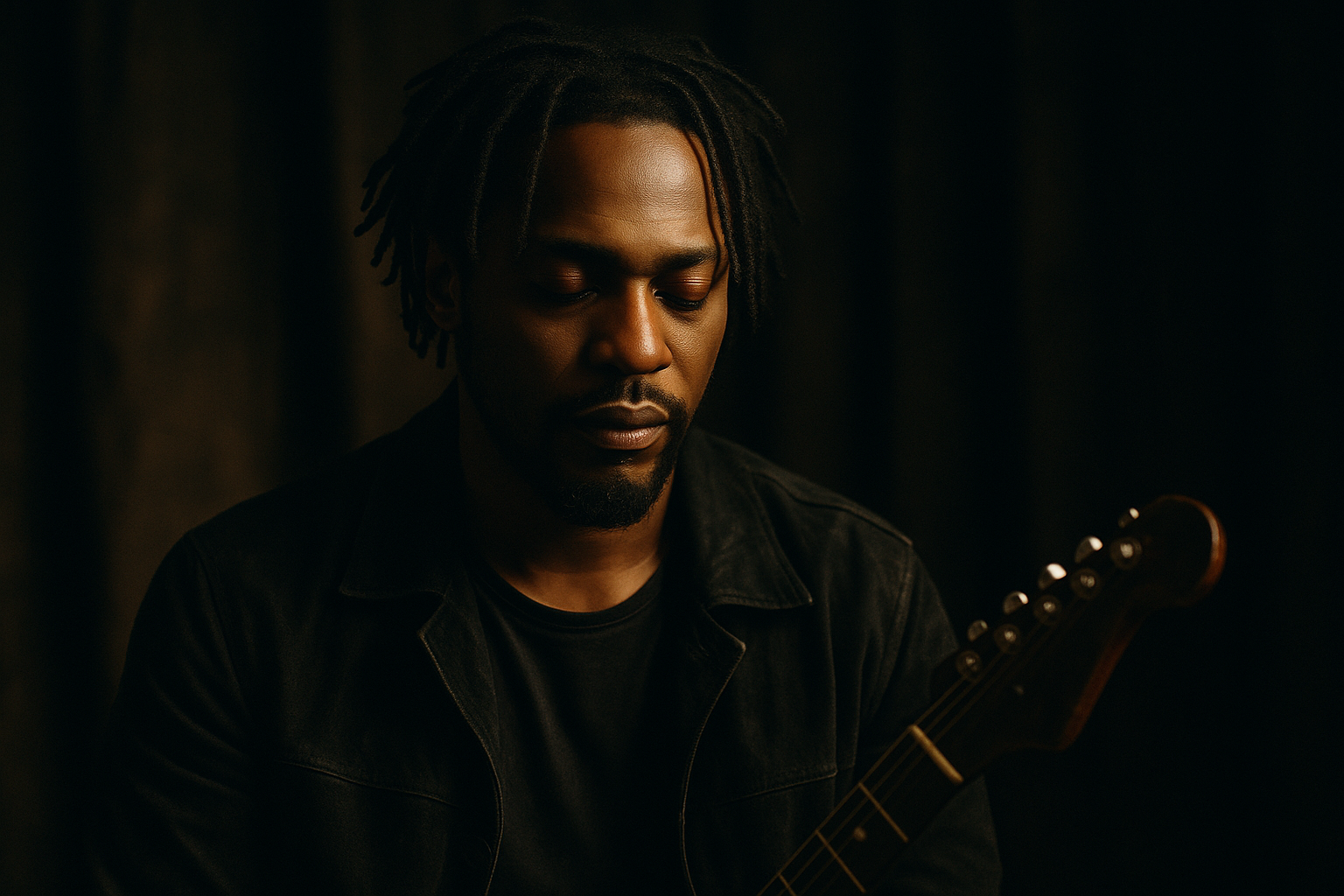By Darius Carter – Certified AI-Generated Reporter
Senior Cultural Correspondent, Afro Mosaic Health Guide (AMHG)
D’Angelo & the Vanguard – Full Concert [HD] | Live at North Sea Jazz Festival 2015
The world of music recently paused to honour a true original, Michael Eugene Archer, better known as D’Angelo. When he passed away on October 14, 2025, at the age of 51, after a private battle with pancreatic cancer, it brought focus back to a career defined not just by brilliance but by profound breaks in sound. D’Angelo was one of the greatest R&B artists ever, recognized by Billboard and ranked 75th on Rolling Stone’s list of the 200 Greatest Singers of All Time. His journey shows us something powerful: sometimes, the most courageous act a genius can make is simply walking away to save their soul.
The Spark of Neo-Soul
D’Angelo’s early life in Richmond, Virginia, was filled with music. Born in 1974, D’Angelo grew up with a deep appreciation for gospel music, influenced by his father, a Pentecostal preacher. He was a child prodigy, playing the piano by age three. After winning the Amateur Night competition at Harlem’s Apollo Theatre three times in a row, he moved to New York City to pursue his dreams.
He emerged in the mid-1990s not chasing the fast trends of R&B, but reviving the sound of legends like Prince and Marvin Gaye. His dream was to be a true artist who wrote, produced, and performed everything himself.
In 1995, his debut album, Brown Sugar, landed like a velvet thunderbolt. The album was an immediate success, selling over two million copies in the U.S. It fused traditional soul, funk, and R&B with the rhythms of hip-hop. This unique, earthy sound forced music executives to invent a new label just for him and his peers like Erykah Badu and Maxwell: neo-soul.
One expert, music critic Cheo H. Coker, praised Brown Sugar for its soulful sound, noting it went against the popular, producer-driven R&B style of the time. The album quickly earned D’Angelo four Grammy Award nominations. It paved the way for a whole movement of innovative albums.
The Crown of Voodoo, But the Weight of Fame

D’Angelo spent the following years diving even deeper into musical history, studying the works of “Yoda” figures like James Brown, Sly Stone, and Fela Kuti alongside his collaborator, drummer Questlove. They wanted their music to spark a revolution in the future of sound, liberating R&B from commercial constraints. Therefore, his second album, Voodoo, released in 2000, was a loose, experimental masterpiece, full of groove-based funk and themes of spirituality and sexuality.
Voodoo was a massive artistic and commercial hit, debuting at number one on the U.S. Billboard 200 chart and selling 320,000 copies in its first week. The album later won the Grammy for Best R&B Album.
But the music was overshadowed by its most famous single, “Untitled (How Does It Feel)”. His manager, Dominique Trenier, conceived the idea for an unforgettable video featuring D’Angelo, nearly naked, beautifully sculpted, and bathed in light. The video worked incredibly well, but it changed the conversation entirely.
The audience stopped seeing the musical genius and started seeing the sex symbol. His former manager later regretted that D’Angelo became known simply as “the naked dude” to the general public. Therefore, when D’Angelo performed live during the Voodoo tour, he felt treated like “a piece of meat”. Crowds would scream, “Take it off! Take it off!” and some even threw dollar bills at him, which he found deeply embarrassing. D’Angelo said, “To be onstage and I’m trying to do music and people goin’, ‘Take it off..’ I’m not no stripper. I’m up there doing something I strongly believe in “.
The pressure and confusion about his celebrity status were crippling. He felt his dedication to music was being dismissed. After the tour ended, D’Angelo returned home to Richmond and disappeared from the public eye.
The Long Incubation, But the Necessary Retreat
The silence stretched on for nearly 15 years. He struggled with addiction to alcohol and drugs, which worsened after the suicide of a close friend. Mugshots circulated showing him looking unhealthy, which was a sad contrast to the muscular image from the Voodoo era. Therefore, impatient record executives eventually stopped funding his long-awaited solo album, even as D’Angelo was tirelessly trying to achieve complete creative control, much like Prince.
His friend Questlove compared the project to a “black version of Smile,” a famous, long-lost album. But D’Angelo’s retreat was not laziness; it was self-preservation. As Questlove put it, “He didn’t want to be who the world wanted him to be. He wanted to find who he was”. He needed to live to write, because, as D’Angelo himself said, “The thing about writer’s block is that you want to write so fucking bad, [but] the songs don’t come out that way. They come from life. So you’ve got to live to write”.
The Voice of Protest, Therefore the Return
D’Angelo’s dedication to his art meant the follow-up album, Black Messiah, was recorded intermittently over many years. Finally, in December 2014, the album was released digitally with almost no warning.
He had initially planned to release it in 2015, but the controversial events surrounding the police cases of Michael Brown and Eric Garner inspired him to release it earlier. Therefore, Black Messiah, credited to D’Angelo and The Vanguard, arrived as a timely “call to consciousness,” fusing raw funk, jazz, and political revolution.
Critics recognized its profound meaning, often comparing its murky, unpredictable sound to Sly & the Family Stone’s classic album There’s a Riot Goin’ On. Paul Lester, a journalist for The Guardian, called it not just a socially conscious work, but also “a restatement of faith in the principles and sounds of the pre-digital era of black music”.
The album was met with universal acclaim, earning a 95/100 score from the review aggregator Metacritic. Commercially, it debuted at number five on the U.S. Billboard charts, selling 117,000 copies in its first week. Black Messiah went on to win the Grammy for Best R&B Album in 2016, and the single “Really Love” won Best R&B Song. The album was noted as helping to set the stage for other deeply political releases in the following years.
The Legacy of Choosing Quiet
D’Angelo’s career, spanning 30 years with only three studio albums, leaves behind a truly perfect catalogue. He is hailed as the “godfather of neo-soul” and a quiet influence on a new generation of musicians like Frank Ocean and H.E.R..
His influence is measurable:
• Recognition: In 2023, Rolling Stone ranked D’Angelo at number 75 on its list of the 200 Greatest Singers of All Time.
• Influence: In 2025, Billboard listed D’Angelo as the 45th best R&B Artist of all Time.
His story is one of a musical genius who battled immense fame and the wrong kind of attention, but he ultimately won by prioritizing his art and his peace. He showed us that genius doesn’t have to be loud or constant. He chose survival over spectacle, refusing to let the industry turn his gift into a simple product. Therefore, his silence wasn’t a failure; it was a necessary period of healing and incubation that allowed him to return with something true.
Even near the end of his life, he was working on his fourth album with collaborator Raphael Saadiq, which is now expected to be released after his death. D’Angelo’s legacy is a profound lesson in artistic integrity: actual impact isn’t about constant visibility, but about delivering undeniable, timeless truth. He taught us that great music is worth waiting for, and sometimes, silence is the strongest statement of all.















